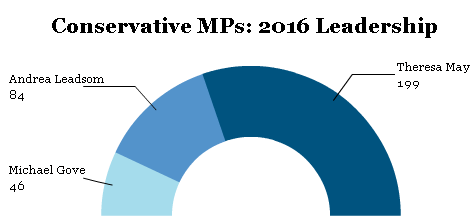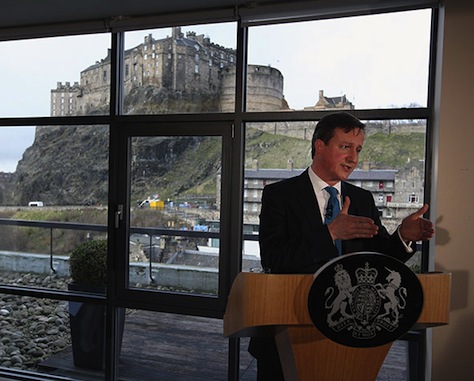
It’s as if an entire season of Game of Thrones swept through British politics in the space of two-and-a-half weeks.![]()
The list of political careers in ruins runs long and deep. Prime minister David Cameron himself. Chancellor George Osborne. Former London mayor Boris Johnson. Justice secretary Michael Gove. Nigel Farage, the retiring leader of the United Kingdom Independence Party (UKIP). Maybe even Labour leader Jeremy Corbyn, who may enjoy the support of grassroots Labour members, but not of his parliamentary party.
Monday brought another casualty of the post-Brexit era: energy secretary Andrea Leadsom, who withdrew from the September leadership contest for the Conservative Party leadership. The decision came just four days after Tory MPs pitted Leadsom (with 84 votes) in a runoff against home secretary Theresa May (with 199 votes), eliminating Gove (with just 46 MPs supporting him).
Leadsom, who supported the Leave campaign in the June 23 referendum, had garnered the support of the eurosceptic Tory right, including endorsements from former leader Iain Duncan Smith and other Leave campaign heavy-hitters like Johnson and even Farage. But Leadsom struggled to adapt to the public stage as a figure virtually unknown outside of Westminster a week or two ago (reminiscent in some ways of Chuka Umunna’s aborted Labour leadership campaign last year).
Though she promised to bring far more rupture to Conservative government than May, Leadsom also struggled to defend against charges that she embellished her record as an executive in the financial sector before turning to politics. Over the weekend, she suffered a backlash after suggesting she would be a better leader because she (unlike May) had children.
It was always an uphill fight for Leadsom, despite the rebellious mood of a Tory electorate that voted overwhelmingly for Brexit and was clearly attracted to Leadsom’s more radical approach. May, a more cautious figure, supported the Remain campaign during the referendum, though she largely avoiding making strong statements either for or against EU membership. At one point, she argued that the United Kingdom should leave the European Court on Human Rights (a position that she has disavowed now as a leadership contender).
So what happens next? And what do the prior 18 days portend for the policies and politics of the May government? Continue reading Ten things that May’s elevation to No. 10 tells us about Britain’s future

